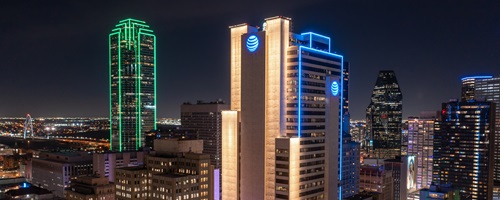|
|
|
|
|
|
|
|
|
|
|
|
General Motors Lays Off More Than 3,300 EV Workers in U.S. Plants
|
|
|
|
|
|
|
|
Today: The automaker is cutting jobs as it adapts to an evolving regulatory environment; companies worldwide are divulging more on sustainability, says OECD; All Aboard coalition sees profit in helping clean-tech to scale.
|
|
|
|
|
|

|
|
GM said it is responding to slower near-term adoption of EVs. Photo: Emily Elconin/Bloomberg
|
|
|
|
|
|
Welcome back: General Motors is laying off thousands of workers at factories that make electric vehicles and EV batteries as it retrenches from EVs after the end of federal subsidies and the elimination of some emissions regulations, the WSJ's Christopher Otts reports.
GM plans to lay off more than 3,300 hourly workers at plants across Michigan, Ohio and Tennessee starting in January. Of those, more than 1,700 are being laid off indefinitely, while more than 1,500 are expected to be called back in mid-2026.
GM isn’t alone in pulling back on EV plans. Ford is moving workers from the plant that makes the electric F-150 Lightning to a nearby factory that makes the more popular—and profitable—gasoline-burning version. Nissan has decided not to offer its Ariya EV as a 2026 model and Honda has halted orders of the electric Acura ZDX, which is manufactured by GM.
GM Chief Executive Mary Barra has said that EVs remain the company’s “North Star” even as it scrambles to reduce its output in the short term. The company has the broadest lineup of EVs, with about a dozen on the market.
Lately, however, the automaker has been stepping back to contain its losses.
|
|
|
|
|
Content from our sponsor: Deloitte
|

|
|
AT&T: Fighting AI Risks with AI
|
|
Cyber leaders face increasing risk as AI evolves. Answering these five questions could put them on the path to building agile, secure corporate infrastructures, says CISO Rich Baich Read More
|
|
|
|
|
|
|
|
|
Companies Worldwide Divulging More on Sustainability, OECD Says
|
|
|
|

|
|
The real-estate industry discloses the least on sustainability yet it is highly exposed to climate risk such as wildfires, the OECD report said. Photo: Josh Edelson/AFP/Getty
|
|
|
|
|
|
Businesses across the globe are talking more about sustainability efforts and concerns in recent years, according to the Organization for Economic Cooperation and Development.
The OECD said companies publicly disclosing sustainability information amounted to 91% of global market capitalization in 2024, compared with 86% in 2022, Clara Hudson reports for Dow Jones Risk Journal.
Breaking down the disclosures by industry, energy companies have the highest rate of reporting—with 94% of the industry’s market capitalization doing so, the report said. The real-estate sector reports the least, at only 78%, and is particularly lax on reporting its emissions, the report said.
The report noted that it is striking that the real-estate industry discloses the least on sustainability, considering its exposure to the physical risks of climate change, from hurricanes to wildfires, as well as its use of high-emissions cement and steel.
|
|
|
|
|
|
|
|
|
|
All Aboard Coalition Sees Profit in Helping Clean-Tech to Scale
|
|
|
|

|
|
A geothermal project near Milford, Utah. Photo: Kim Raff for WSJ
|
|
|
|
|
|
A newly formed 15-member investment group aims to prove that investing in clean-energy startups can generate profits even without supportive government policies, WSJ Pro's Luis Garcia writes.
Their All Aboard coalition plans to back companies that are struggling to bridge the “missing middle” in financing for businesses that have passed early-stage development and reached the point of turning prototypes into commercial products, said co-founder Stan Miranda. He is also the founder and chairman emeritus of Partners Capital, a London-based provider of asset-management services.
Changing federal policies under President Trump have reduced or halted support for climate-focused technology development and deployment, which has served to widen the financing gap.
The group’s 15 investment firms collectively manage roughly $65 billion, Miranda said. They include early-stage investor Breakthrough Energy, formed by Microsoft co-founder Bill Gates, as well as venture-capital firms DCVC, Khosla Ventures and Prelude Ventures.
|
|
|
|
|
|
|
|
|
$10 Million
|
|
Series A funding raised by seaweed startup Uluu to develop a natural alternative to plastic. The Australian company says its materials can be processed using existing plastic manufacturing equipment.
|
|
|
|
|
|
|
|
|
|
|
|
|
-
Developer to build a more than $7 billion data-center campus in Michigan for Oracle and OpenAI’s Stargate project. (WSJ)
-
President Trump’s social media post about resuming nuclear weapons testing has left officials and experts puzzled. (WSJ)
-
The U.K. is weighing legislation to regulate the provision of ESG ratings to businesses. (Dow Jones Risk Journal)
-
Macquarie to lend $450 million to Sandow Lakes Energy, a brownfields developer in Texas focused on building new energy sources. (WSJ)
-
Trump administration fires about a dozen officials within Fannie Mae’s ethics unit. (WSJ)
-
Some doctors say the chemicals all around us may be increasing our risk of Parkinson’s disease, the world’s fastest-growing brain disorder. (WSJ)
-
The Porsche 911 gets an electric boost. (WSJ)
|
|
|
|
|
|
|
|
|
|
|
|
|
|
|
|